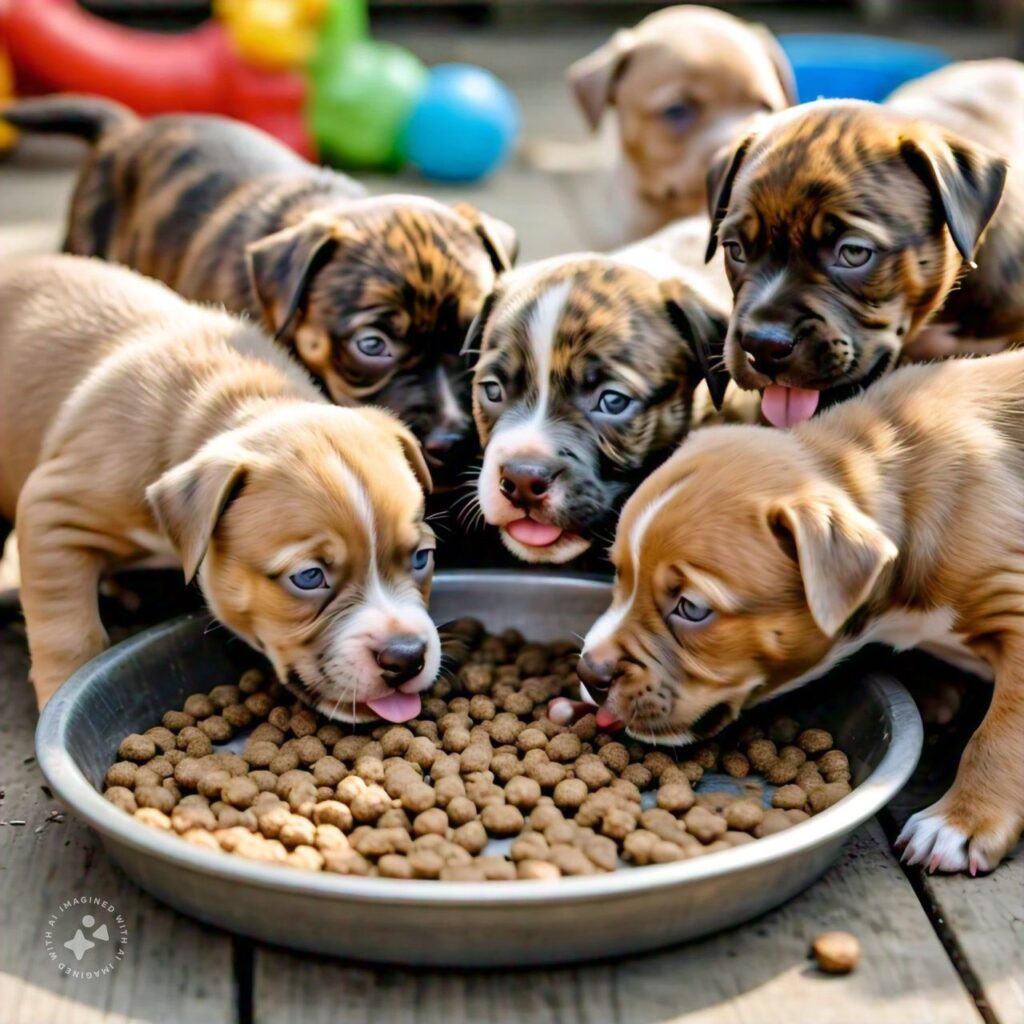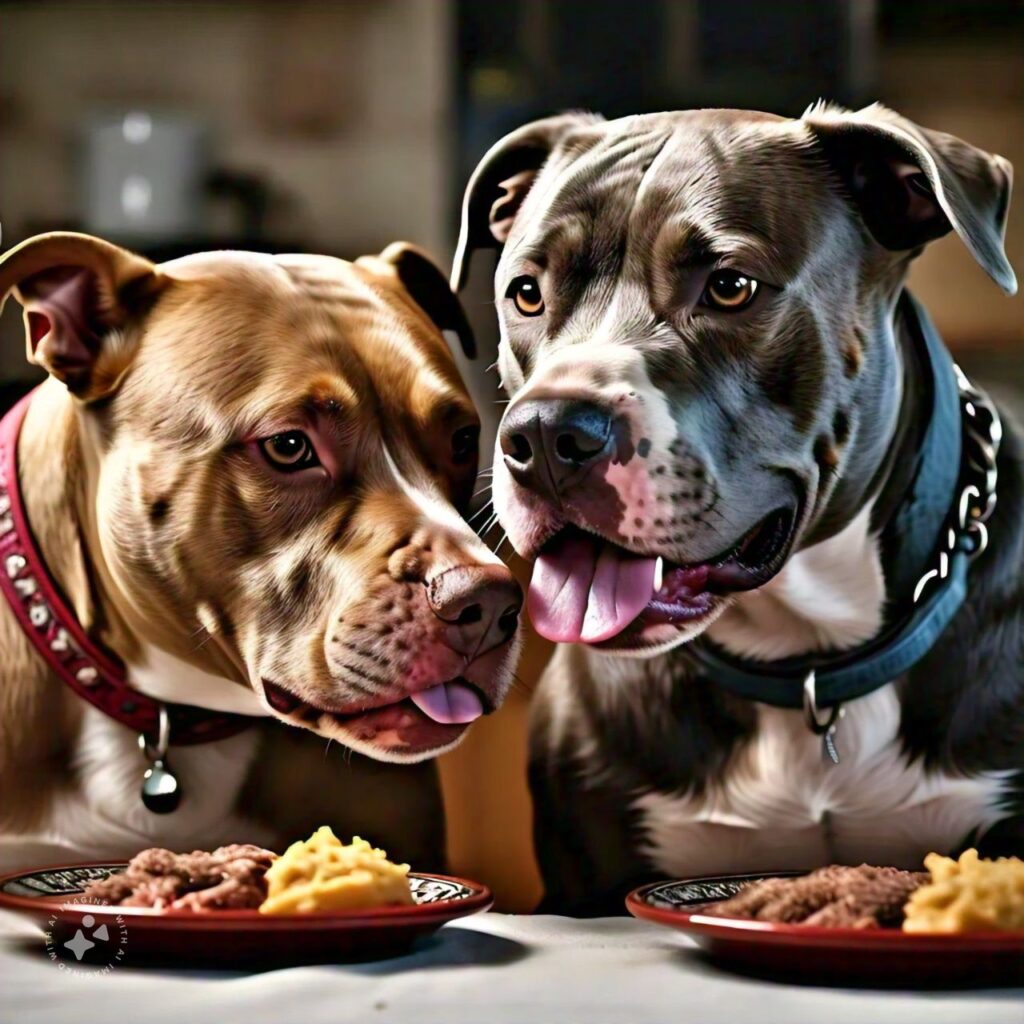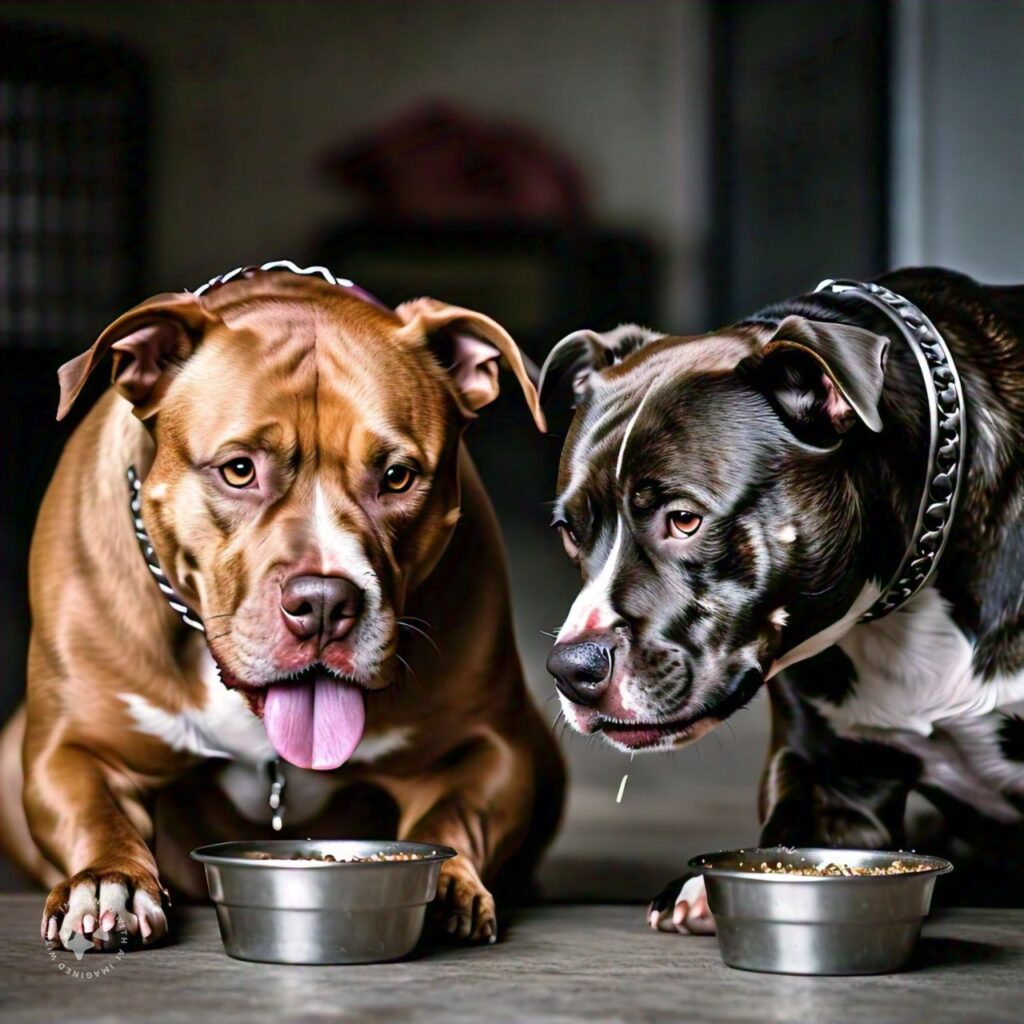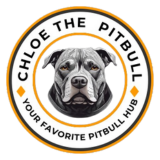How often should a pitbull eat? Ever wondered if feeding your pitbull at the same time every day could make a difference in their health and happiness? Establishing a consistent feeding schedule is crucial for the well-being of Pit Bulls, as it directly influences their overall health and behavior.
For Pitbulls, known for their energetic and robust nature, a structured feeding routine ensures they receive the appropriate nutrients needed for their active lifestyle while supporting their growth and maintaining a healthy weight.
Let’s dive into why regular meal times are more important than you might think and how they can set the stage for a healthier, happier pup.
Feeding Guidelines for Different Life Stages of Pitbulls

Pitbull puppies
Recommended Number of Meals Per Day: Puppies have high energy needs due to their rapid growth and development. For most Pit Bull puppies, it’s best to feed them three to four meals a day.
This frequent feeding schedule helps ensure they get the calories and nutrients needed to support their growth spurts and active lifestyle.
Nutritional Needs for Growth and Development: Puppies require a diet rich in protein, healthy fats, and essential vitamins and minerals to support their developing muscles, bones, and overall health.
High-quality puppy food with a balance of these nutrients is crucial for proper growth. Look for foods specifically formulated for puppies to ensure they get the right balance of nutrients.
Adult Pitbulls

Ideal Meal Frequency for Maintaining Weight and Energy Levels: As your Pitbull matures, transitioning to two meals per day is generally ideal. This helps maintain stable energy levels and prevents overeating.
Regular feeding times also help in managing their weight by keeping their metabolism steady.
Considerations for Active and Less Active Adults: If your Pit Bull is highly active or participates in sports, they may need more calories and a slightly different nutrient balance compared to a less active adult.
Conversely, a less active Pit Bull may require fewer calories to avoid weight gain.
Adjusting portion sizes and meal frequency based on your dog’s activity level is essential to keeping them in optimal condition.
Senior Pitbulls

Adjustments for Age-Related Health Changes: As Pit Bulls age, their metabolism and dietary needs change. Senior Pit Bulls may benefit from a diet lower in calories but higher in fiber to prevent obesity and support digestive health.
They might also need supplements or foods that support joint health and overall well-being.
Frequency and Portion Size for Maintaining Health: For seniors, sticking to two meals a day is still appropriate, but portion sizes may need adjusting based on their reduced activity levels and metabolism.
Monitoring their weight and health regularly can help you make necessary adjustments to their diet.
Additionally, incorporating foods or supplements that support joint health and manage any age-related conditions can be beneficial.
Practical Tips for Feeding
1. Establishing a Consistent Routine
Creating a consistent feeding schedule is key to maintaining your Pitbull’s health and happiness. Try to feed your dog at the same times every day, whether it’s twice or three times a day, depending on their life stage.
Consistency helps regulate their metabolism and can also ease anxiety by providing a sense of routine.
Set reminders if needed, and stick to the schedule as closely as possible to keep your pup’s eating habits on track.
2. Measuring Portions and Avoiding Overfeeding
Accurate portion control is crucial for preventing obesity and ensuring your Pitbull gets the right amount of nutrients.
Use a measuring cup to serve your dog’s food according to the recommendations on the dog food packaging or your vet’s advice.
Be mindful of their body condition and adjust portions as needed. Avoid free-feeding (leaving food out all day), as it can lead to overeating.
Instead, serve their meals at specific times and monitor their weight to ensure they’re maintaining a healthy size.
3. Incorporating Treats and Supplements Without Disrupting Balance
Treats and supplements can be a great addition to your Pitbull’s diet, but they should be given in moderation. Treats should make up no more than 10% of their daily caloric intake to avoid disrupting their balanced diet.
Choose healthy treats and avoid those high in fat and calories.
If you’re adding supplements, such as joint support or probiotics, consult your vet to ensure they complement your dog’s diet and don’t lead to over-supplementation.
Always account for the extra calories from treats and adjust their main meal portions accordingly.
Common Feeding Mistakes
Overfeeding or underfeeding
One of the most common feeding mistakes is getting the balance wrong between overfeeding and underfeeding.
Overfeeding can lead to obesity, which increases the risk of health issues such as diabetes and joint problems. On the other hand, underfeeding can result in malnutrition and insufficient energy levels.
It’s crucial to follow the recommended portion sizes and feeding guidelines tailored to your Pit Bull’s age, weight, and activity level. Regularly monitor their body condition and adjust portions as needed to keep them in optimal health.
Irregular Feeding Schedules
Inconsistent feeding times can disrupt your Pit Bull’s metabolism and cause behavioral issues. Feeding at erratic times may lead to hunger-driven anxiety or digestive problems.
Establishing and sticking to a regular feeding schedule helps regulate their internal clock and supports a balanced metabolism.
It also creates a sense of routine, which can reduce stress and behavioral issues related to food.
Ignoring Specific Dietary Needs
Every Pitbull has unique dietary needs based on their age, health status, and activity level. Ignoring these specific needs can lead to health problems.
For instance, puppies need a diet high in protein for growth, while senior dogs may require lower calories and joint support.
Not addressing these requirements can impact their health and quality of life. Consult with your veterinarian to ensure that your Pitbull’s diet is tailored to their specific needs and to make adjustments based on their life stage and any health conditions.
Conclusion
Establishing a consistent feeding schedule is crucial for your Pitbull’s health and happiness. Remember, regular meal times help maintain a stable metabolism, prevent obesity, and support overall well-being.
Avoid common pitfalls like overfeeding, underfeeding, and irregular schedules by measuring portions accurately and sticking to a routine. Don’t forget to account for treats and supplements without disrupting their balanced diet.
For the best results and to address any specific dietary concerns, it’s always a good idea to consult with your veterinarian. They can provide personalized advice based on your Pit Bull’s unique needs, ensuring they stay healthy, happy, and thriving.





25 comments
Your article helped me a lot, is there any more related content? Thanks!
Can you be more specific about the content of your article? After reading it, I still have some doubts. Hope you can help me.
Thank you for your sharing. I am worried that I lack creative ideas. It is your article that makes me full of hope. Thank you. But, I have a question, can you help me?
Your point of view caught my eye and was very interesting. Thanks. I have a question for you.
Your article helped me a lot, is there any more related content? Thanks!
Thanks for sharing. I read many of your blog posts, cool, your blog is very good.
Your article helped me a lot, is there any more related content? Thanks!
Your point of view caught my eye and was very interesting. Thanks. I have a question for you. https://www.binance.info/en/register?ref=JHQQKNKN
Thanks for sharing. I read many of your blog posts, cool, your blog is very good.
Your point of view caught my eye and was very interesting. Thanks. I have a question for you.
I don’t think the title of your article matches the content lol. Just kidding, mainly because I had some doubts after reading the article.
Thank you for your sharing. I am worried that I lack creative ideas. It is your article that makes me full of hope. Thank you. But, I have a question, can you help me?
Can you be more specific about the content of your article? After reading it, I still have some doubts. Hope you can help me.
Your point of view caught my eye and was very interesting. Thanks. I have a question for you.
Thank you for your sharing. I am worried that I lack creative ideas. It is your article that makes me full of hope. Thank you. But, I have a question, can you help me?
Thanks for sharing. I read many of your blog posts, cool, your blog is very good. https://accounts.binance.info/en-IN/register-person?ref=UM6SMJM3
Your point of view caught my eye and was very interesting. Thanks. I have a question for you.
I don’t think the title of your article matches the content lol. Just kidding, mainly because I had some doubts after reading the article.
Thanks for sharing. I read many of your blog posts, cool, your blog is very good.
Can you be more specific about the content of your article? After reading it, I still have some doubts. Hope you can help me.
Your article helped me a lot, is there any more related content? Thanks!
Your article helped me a lot, is there any more related content? Thanks!
Can you be more specific about the content of your article? After reading it, I still have some doubts. Hope you can help me.
Thanks for sharing. I read many of your blog posts, cool, your blog is very good.
I don’t think the title of your article matches the content lol. Just kidding, mainly because I had some doubts after reading the article.